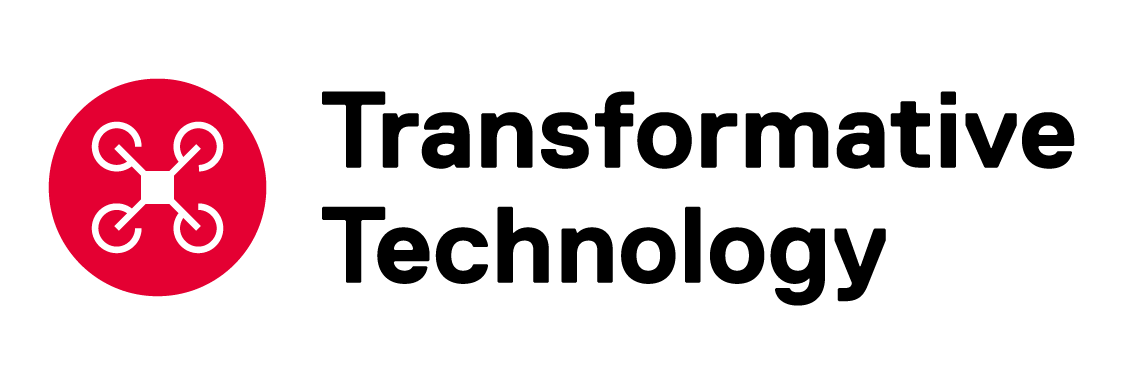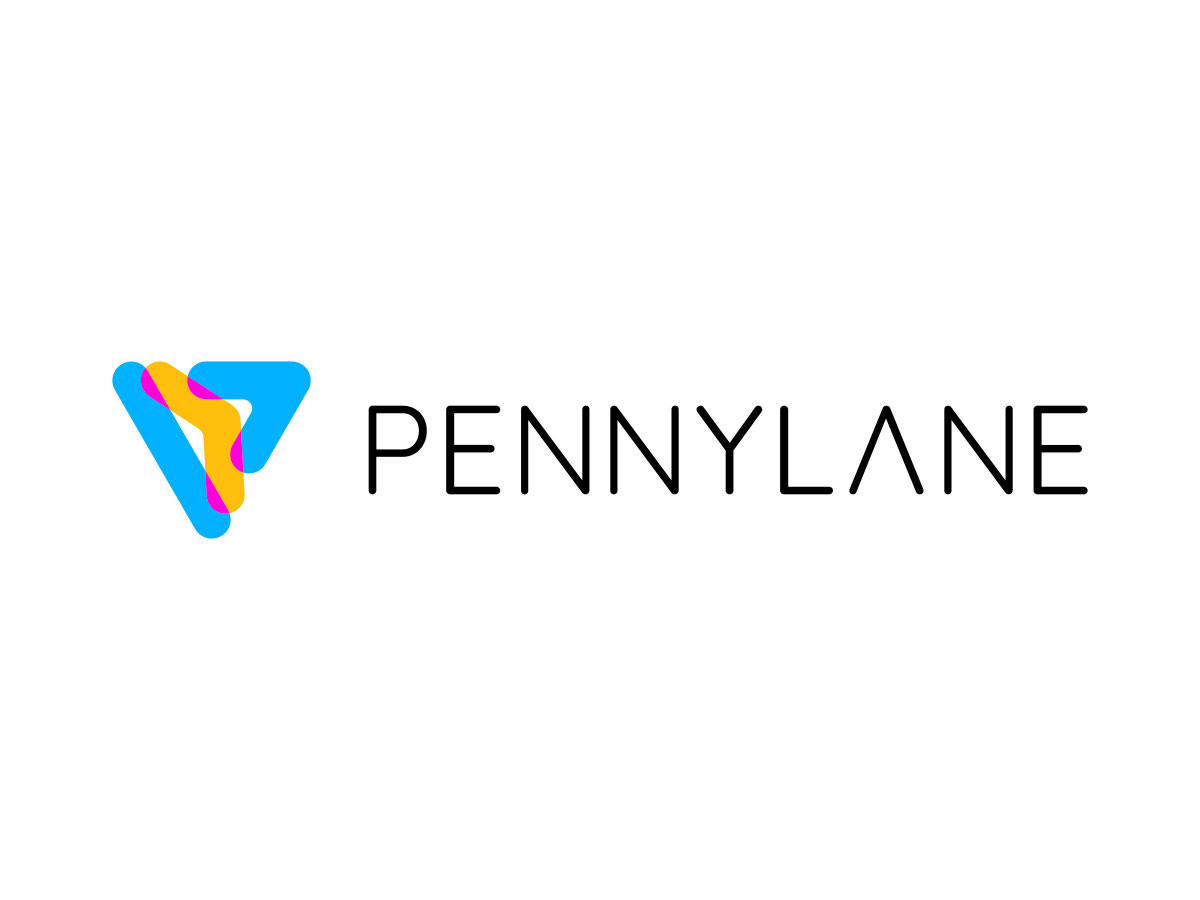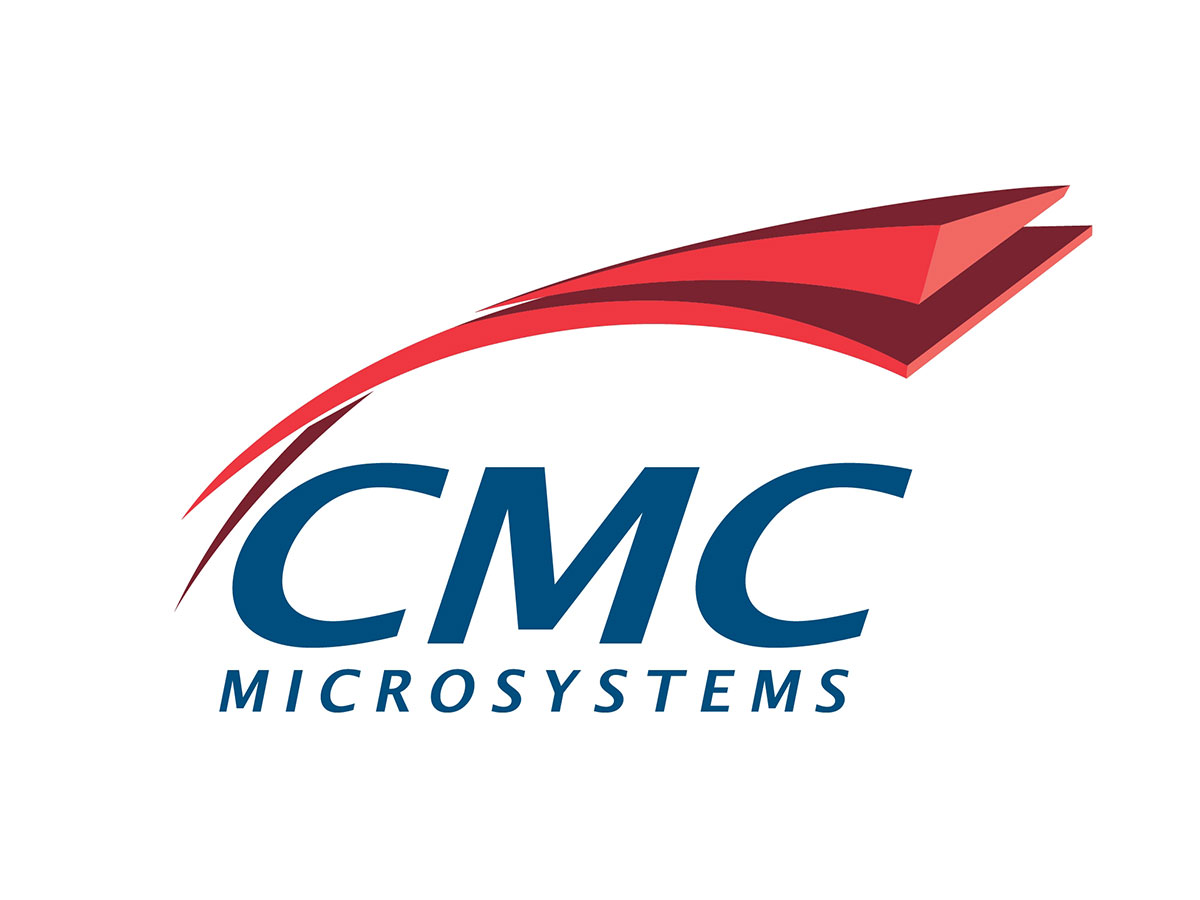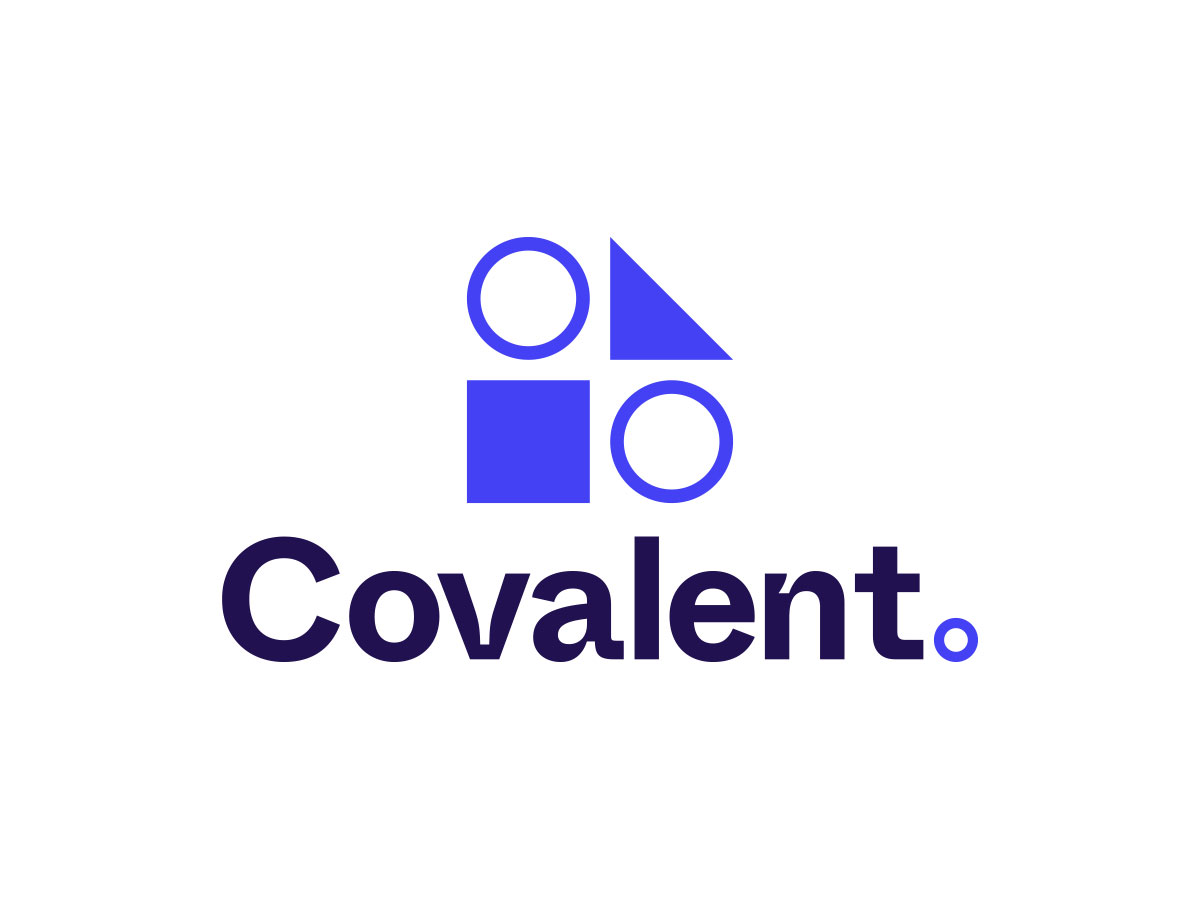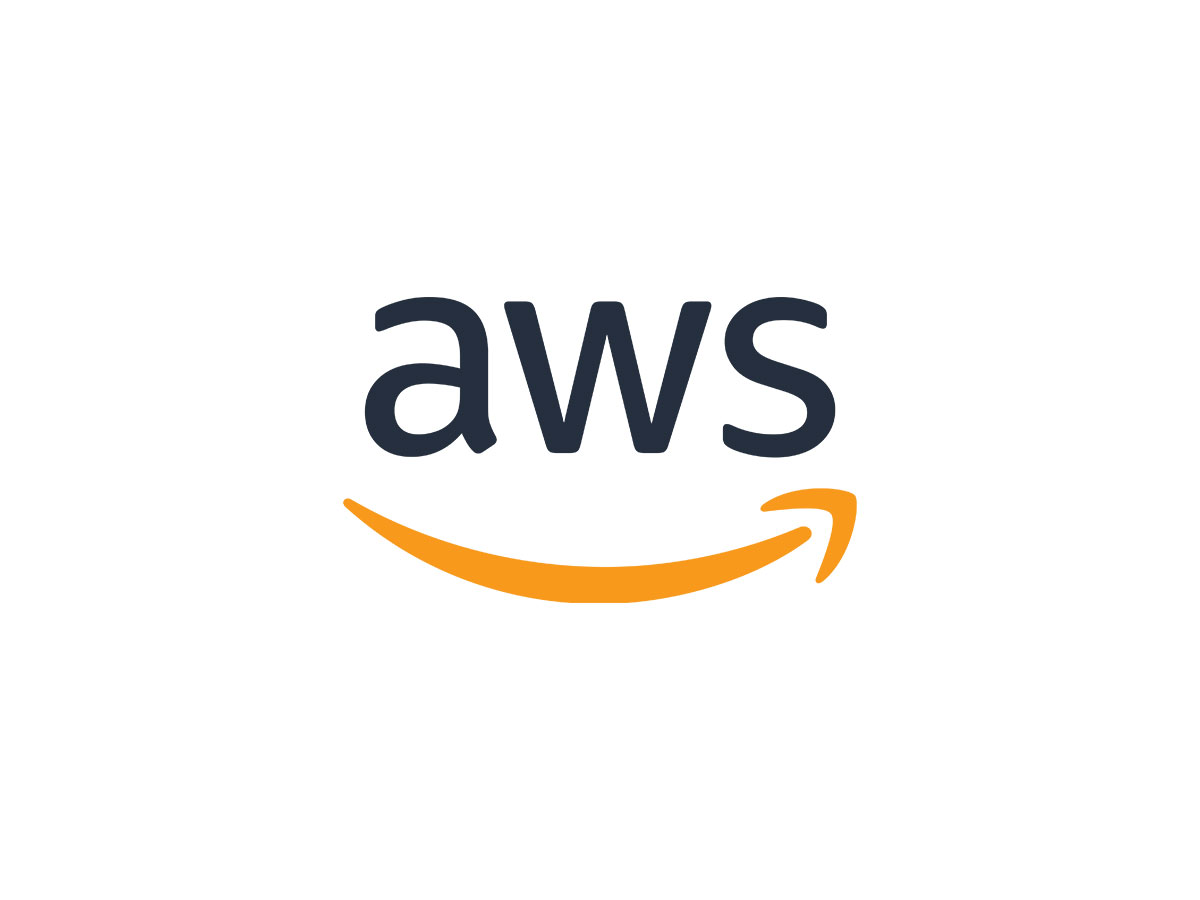Quantum TMU: Quantum Science and Technology at Toronto Metropolitan University
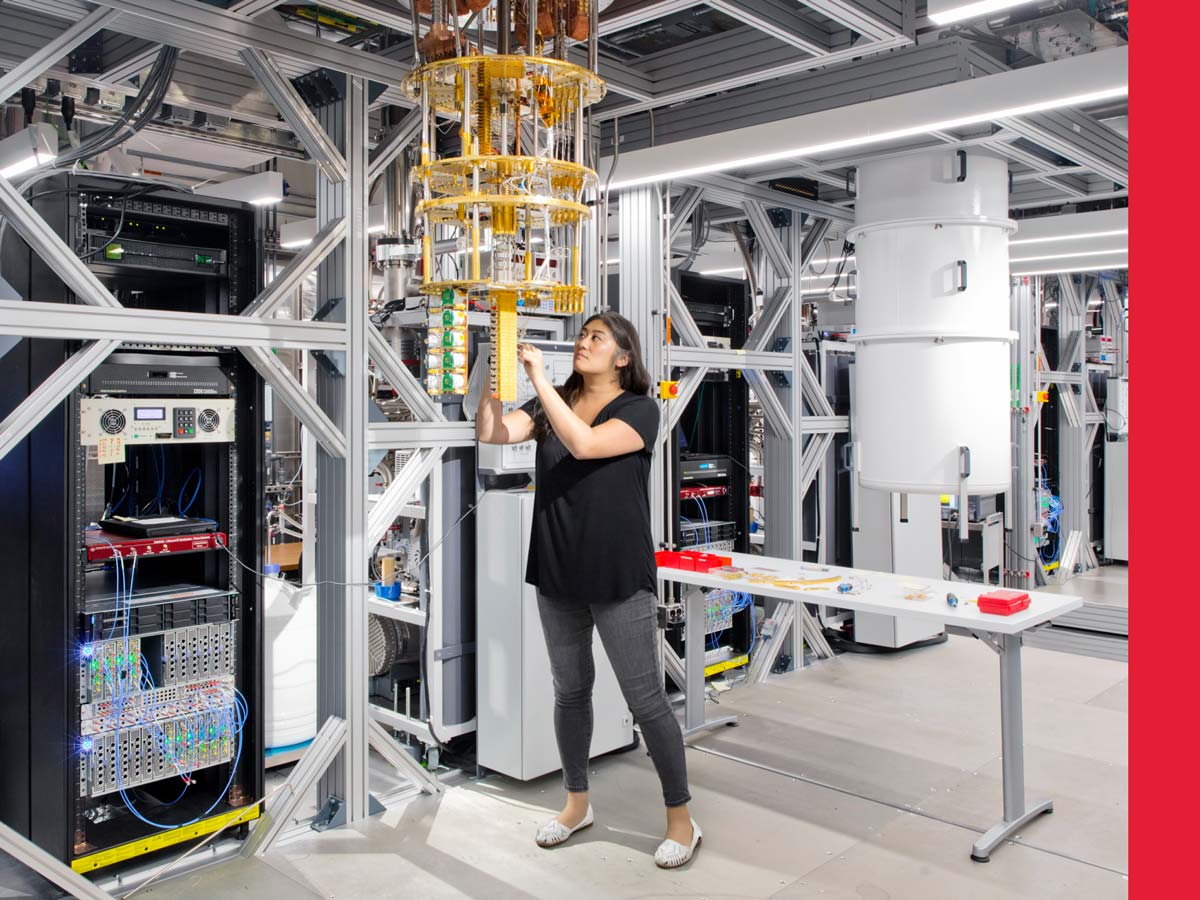
Photo: IBM
Canada is a global leader in quantum science and technology (QST), an emerging field that promises to transform how the world works and lives. As Canada's comprehensive innovation university, TMU is uniquely positioned to harness the potential of QST through our entrepreneurial approach to scholarly, research and creative (SRC) activity.
The Quantum TMU strategy reflects and aligns with Canada’s National Quantum Strategy (NQS) but carves out key niches that exploit our faculty’s expertise to forge long-term research and education partnerships.

Research Pillars
We have built our Quantum TMU strategy and flight plan on the synergistic combination of our existing institutional resources and the following three pillars of QST research.

1
Quantum software and responsible AI/machine learning
TMU researchers are putting the power of quantum computing to use for the creation of new software tools that deploy AI and machine learning in safe and ethical ways to study systems and data structures too complex for classical computing.
2
Quantum-ready cybersecurity
TMU researchers are working to secure sensitive data and systems from quantum-enabled threats, creating and implementing safeguards that anticipate technologies which have yet to be created or have not yet become widely available.
3
Quantum materials and sensors
TMU researchers are harnessing the unique properties of certain materials, which are incredibly sensitive at the quantum scale, to develop sensors and other hardware that could revolutionize health-care technologies, energy systems and more.

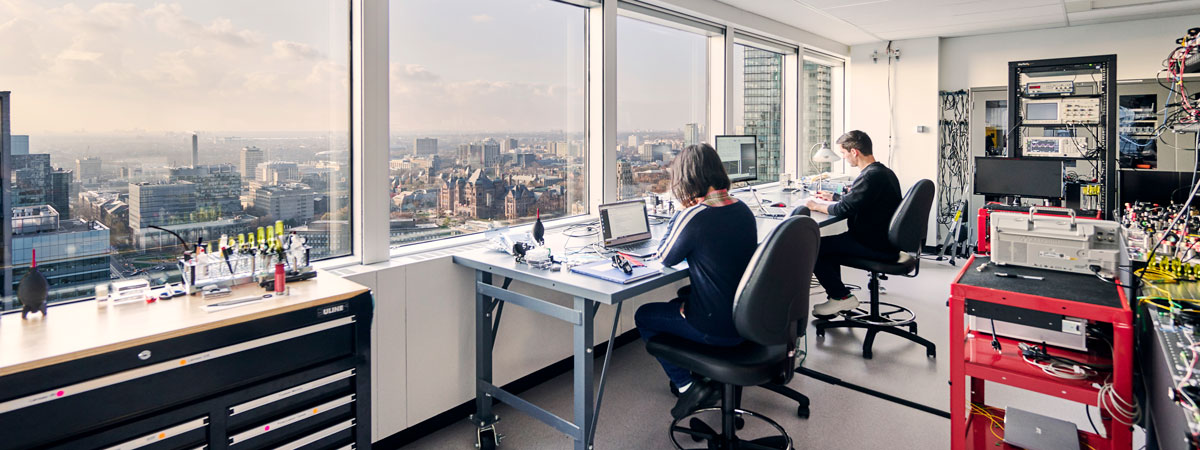
Areas of Collaboration
In alignment with (PDF file) TMU’s Strategic Research Plan, the three research pillars will support partnerships across five key areas of collaboration.
Photo: Xanadu
Future Cities
Aerospace
Migration and Integration
Future of Work
Health Sciences
From managing networked transportation systems and energy grids to providing clean water and reliable internet, quantum technologies will play a significant role in the way our future cities are planned and operated.
Fields of Application
- Mobility and transportation: people and goods
- Energy
- Water
- Communications and Telecom, 6G
- Safety
- Cybersecurity
- Logistics, supply chains
- Digital twins
- Internet of Things (IoT)
- Big data
Opportunities for Collaboration
- Large, complex datasets
- Simulation of complex systems
- Infrastructure, logistics and data security
Institutional Resources
- Advanced research labs in city building and applied ethical AI/machine learning
- Centre for Urban Energy
- Centre for Urban Research and Land Development
- City Building TMU
- Cybersecurity Research Lab
- TMU Institute for Infrastructure Innovation
- Urban Analytics Institute (external link)
Quantum computing can provide policy makers and service providers with data-driven tools to better understand, anticipate and meet the needs of the many people making new homes in destination countries around the world.
Fields of Application
- Social networks
- Public health systems
- Social determinants of health
- Workforce integration and skills development
- Government decision-making and policy development
Opportunities for Collaboration
- Large, complex datasets
- Infrastructure, logistics and data security
Institutional Resources
- Advanced research labs in city building and applied ethical AI/machine learning
- Bridging Divides (funded by CFREF)
- Canada Excellence Research Chair in Migration and Integration
- Cybersecurity Research Lab
- Toronto Metropolitan Centre for Immigration and Settlement
Health-care applications of quantum technologies have the potential to save lives, whether it’s developing diagnostic tools that leverage the abilities of quantum sensors or new systems to manage, protect and apply patient data in practice.
Fields of Application
- Diagnostics and therapeutics
- Imaging
- Patient data/privacy
- Cybersecurity
Opportunities for Collaboration
- Quantum-enabled bedside technologies
- Large, complex datasets
- Infrastructure, logistics and data security
Institutional Resources
- Advanced research labs in medical imaging and diagnostics (AI/machine learning and quantum sensors)
- Cybersecurity Research Lab
- Institute for Biomedical Engineering, Science and Technology (iBEST) (external link)
The sky is the limit when it comes to how quantum-enabled software and sensors can be applied to improve how aircraft are designed and how they navigate, run diagnostics and are controlled, creating safer and smarter ways to fly.
Fields of Application
- Navigation
- Cybersecurity
- Manufacturing
- Diagnostics and sensors
Opportunities for Collaboration
- Complex security issues and datasets
- Safety
- Supply chain infrastructure and logistics
- UI and UX
Institutional Resources
- Advanced research labs in aerospace, navigation, logistics, digitization, applied AI/machine learning, cybersecurity
- Centre for Advanced Engineering Research and Innovation in Aerospace Science
- TMU Aerospace Engineering Centre
The way we work is changing, and quantum technologies will be a part of that change, making it necessary to train and equip a workforce capable of understanding and harnessing the potential of a quantum future.
Fields of Application
- Computing applications
- Software engineering & development
- UI, UX
- Cybersecurity
- Communications
- Ethics & societal impact / EDI
- Quantum education (on and off campus)
Opportunities for Collaboration
- Increasing need for education, understanding and acceptance of quantum technologies
- Technology adoption in the workplace
- Infrastructure, logistics and data security
Institutional Resources
- Cybersecurity Research Lab
- Future Skills Centre (external link)
- Magnet (external link) (digital community workforce system)
- Responsible Artificial Intelligence
- Rogers Cybersecure Catalyst (external link)
Funding Opportunities
Targeted funding for QST research is available in addition to broader funding opportunities through the Mitacs, Ontario Research Fund – Research Excellence, and NSERC CREATE programs.
Photo: IBM

Mitacs Globalink Research Award (GRA) quantum technologies initiative (external link, opens in new window) External Deadline: January 12, 2024 (for internships starting in mid-April 2024); March 31, 2024 (for internships starting in July 2024) |
Leslie Bone lbone@torontomu.ca |

The Quantum TMU Circle
The Quantum TMU Circle comprises researchers with deep knowledge or interest in QST who can advance QST or apply it in their research.
Joon Chung (Aerospace Engineering) develops Multidisciplinary Design Optimization (MDO) tools for aerospace applications using various optimization methods and extended reality immersive technology.
Reza Faieghi (Aerospace Engineering) models the relationship between advanced autonomous networks, such as those used to control autonomous vehicles and human behaviour.
Bilal Farooq (Canada Research Chair, Disruptive Transportation Technologies and Services) builds prediction models to inform public policy around future transportation systems.
Nariman Farsad (Computer Science) studies distributed deep learning and reinforcement learning, machine learning for sensing, and deep learning for video processing in virtual and augmented reality.
Farrokh Janabi-Sharifi (Mechanical and Industrial Engineering) developed a robot used during surgery to correct atrial fibrillation, a condition that can lead to stroke or heart failure.
April Khademi (Electrical, Computer, and Biomedical Engineering) develops image analysis and machine learning tools to model the progression of diseases and create personalized therapies.
Naimul Khan (Electrical, Computer, and Biomedical Engineering) develops cloud-based augmented and virtual reality technologies to improve services provided by first responders, educators and health-care providers.
Ali Mazalek (Canada Research Chair in Digital Media and Innovation) designs and applies emerging digital media interaction techniques to support creativity and discovery across the physical and digital worlds.
Nagi Mekhiel (Electrical, Computer and Biomedical Engineering) is solving fundamental problems facing the computer industry, including the scalability of parallel processors and the processor/memory speed gap.
Alexandra Mogyoros (Law) explores the architecture of legal regimes that regulate technology, particularly how we regulate private actors and private spaces in the public interest.
Afsoon Soudi (Media Production) utilizes machine learning and responsible AI to design digital products and enhance audience engagement.
Sharareh Taghipour (Mechanical and Industrial Engineering) develops advanced descriptive, predictive and prescriptive analytics-based solutions for physical asset management.
Eric Vaz (Environmental Applied Science and Management) uses spatial analysis, complex system modelling and geographical information systems to understand regional dynamics and inform policy.
Bala Venkatesh (Electrical, Computer, and Biomedical Engineering) works with partners to develop innovative electric power and energy storage systems for smart grids.
Jeff Xi (Industrial Research Chair in Advanced Interiors and Systems) develops smart systems using AI-based mechatronics technology to enhance aircraft cabin comfort.
Andy Ye (Electrical, Computer, and Biomedical Engineering) works to reduce the power consumption of Field Programmable Gate Arrays, an integrated circuit necessary for advanced computing.
Morteza Zihayat (Information Technology Management) uses machine learning to model search engine use, mine social network data, and improve the performance of computing applications.
Mohammadreza Arani (Electrical, Computer, and Biomedical Engineering) develops new modelling and control tools to safeguard the cyber-physical security of smart grid technologies.
Claude Gavel (Computer Science) researches quantum device resiliency and secure computation with applications in cryptography, communication protocol and security.
Atefeh Mashatan (Canada Research Chair, Quality of Security Framework for Internet-of-Things) helps prepare organizations for the migration to quantum-resistant cryptography.
Andriy Miranskyy (Computer Science) quantifies and mitigates risks in software engineering, focusing on large-scale software systems, especially those that process and analyze Big Data.
Jelena Mišić (Computer Science) is investigating the use of dynamic platform techniques to detect and defend against multi-stage cyber attacks.
Vojislav Mišić (Computer Science) is exploring the uses of blockchain technology in industries where security and privacy are paramount, such as Internet of Things and e-healthcare systems.
Pawel Pralat (Mathematics) develops machine learning models and tools for mining complex networks and has worked on quantum-resistant communications in connected and autonomous vehicles.
Marcus Santos (Cybersecure Catalyst) is ensuring high quality cybersecurity research, teaching and training to build capacity for the Canadian workforce and industry.
Ozgur Turetken (Information Technology Management) studies the organization and presentation of information as it relates to individual decision-making.
Daolun Chen (Mechanical and Industrial Engineering) develops lightweight, high-strength materials, including high-entropy alloys, used in the manufacturing of cars, airplanes and other applications.
Chil-Hung Cheng (Chemical Engineering) develops recipes for creating porous materials with structures that selectively capture different molecules.
Yaser Dahman (Chemical Engineering) uses the renewable and sustainable resources of agro-industrial waste to develop green biomaterials, biodegradable plastics and biofuels.
Alex Ferworn (Computer Science) develops remote sensing and networked technologies, crewless vehicles and innovative human-computer interfaces for practical search and rescue applications.
Dae Kun Hwang (Canada Research Chair, Microarchitecture for Advanced Polymeric Materials) creates novel polymer-based platforms to develop biomedical applications, such as less invasive microneedles and low-cost cancer detection.
Stefania Impellizzeri (Chemistry and Biology) designs new molecules and materials for applications in nanocatalysis, computer technologies, memory devices and super-resolution bioimaging.
Emre Karatas (Aerospace Engineering) studies the morphology of flame-synthesized nanomaterials and material science applications for black carbon.
Bryan Koivisto (Chemistry and Biology) designs materials and devices capable of converting light into electric signals, which can be used for numerous advanced sensor applications.
Dafna Sussman (Electrical, Computer and Biomedical Engineering) uses magnetic resonance imaging to detect fetal abnormalities in utero before physiology is permanently altered.
Bo Tan (Aerospace Engineering) has created quantum sensors from fabricated silicon that can be used to detect cancer in its early stages, improving patient prognosis.
Krishnan Venkatakrishnan (Electrical, Computer, and Biomedical Engineering) builds scalable manufacturing methods to produce nanosensors for a range of applications.
Hadis Zarrin (Chemical Engineering) uses nanoengineered materials and machine learning to develop clean energy storage solutions and smart clothing.

Institutional Resources
Multidisciplinary
- Bridging Divides
- Centre for Urban Research and Land Development
- City Building TMU
- Cybersecurity Research Lab
- Institute for Innovation and Technology Management
- Responsible Artificial Intelligence
- Rogers Cybersecure Catalyst (external link)
- Social Media Lab (external link)
- Toronto Metropolitan Centre for Immigration and Settlement
- Toronto Metropolitan University Institute for Infrastructure Innovation
- Urban Analytics Institute (external link)
Sector-Focused
- Autonomous Vehicles Laboratory
- Centre for Advanced Engineering Research and Innovation in Aerospace Science
- Centre for Urban Energy
- Image Analysis in Medicine Lab
- Institute for Biomedical Engineering, Science and Technology (external link)
- Laboratory of Innovations in Transportation (external link)
- Toronto Metropolitan University Aerospace Engineering Centre
- Urban Water TMU

Our Collaborators
At TMU, we are proud to foster dynamic collaborations with leading industry partners in the burgeoning field of quantum science and technology (QST). These strategic alliances enable us to combine academic expertise with real-world applications, driving innovation and pushing the boundaries of quantum technologies. Through these partnerships, we engage in cutting-edge research, develop groundbreaking solutions and empower the next generation of quantum solution pioneers. Together with our industry collaborators, we are at the forefront of shaping the future of computing, revolutionizing industries and solving complex global challenges.
If you are a researcher looking to engage with any of our current collaborators listed below – or an industry partner looking to collaborate with TMU – please contact Michelle Chrétien, Assistant Vice-President, Research Partnerships and Commercialization, at michelle.chretien@torontomu.ca
Please note: Researchers will be responsible for any fees incurred with the usage of these technologies, and agreements may need to be signed with the individual organizations that govern their usage. This page will be updated as new partnerships are formed, so please bookmark it for future reference.


Contact Us
Richard McCulloch, PhD
Executive Director, Research Services
richard.mcculloch@torontomu.ca
Michelle Chrétien
Assistant Vice-President, Research Partnerships and Commercialization
michelle.chretien@torontomu.ca
